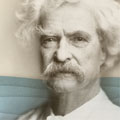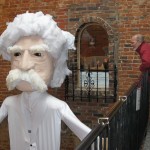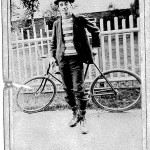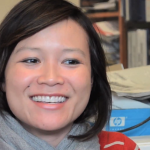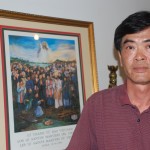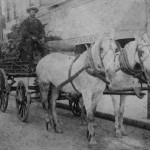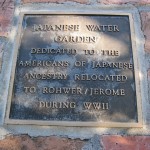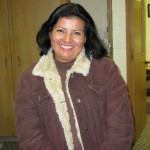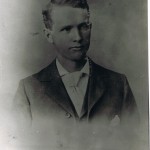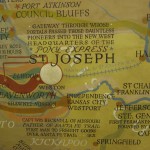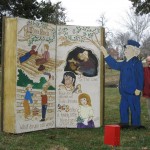When the doctors couldn’t completely remove the large and painful cyst on her son Kent’s lower back, Chung Kim Do, who insists that we call her Miss Kim, took matters into her own hands.
Miss Kim, 58, is a single immigrant mother from Vietnam who raised six children in Baton Rouge, Louisiana. She is skeptical of Western medicine and, despite all the love that she has for her new homeland, Miss Kim refuses to administer Tylenol when she can call upon the healing properties of ginger and other herbs.
Every night, for five nights, Miss Kim snuck into her son Kent’s room, rolled him over and lifted up his shirt. She spat on the cyst and gently rubbed her saliva into the lesion as her son slept. A business week later, the cyst was gone.
Kent looks a little embarrassed when his mother tells us the tale. Her hair is neatly pressed up in a mini-bouffant and her girlish bangs are swept to one side. Dressed in a pinstriped business suit and adorned with jeweled earrings, Miss Kim clearly took the lessons she learned at beauty school to heart. Her laugh is an inaudible, joyous eruption and her kind eyes moisten with sadness or pride, depending on the story she’s telling.
A particularly wet-eyed story was the one about how she got here.
“I don’t understand,” Miss Kim said, looking upward. “God blessed me.”
She was born in 1953 in a small hamlet called Pleiku, where my mother was also raised. I visited Pleiku once. As I sputtered along on a motorcycle with my father, I remember seeing a severed dog head for sale in the market. When we drove back through the main drag, the dog head was gone.
My mother has fonder memories of the place.
She was Miss Kim’s best friend in grade school. My mother remembers walking home from school with Chung every day. The road was lined with shady trees and vendors selling frozen yogurt. Miss Kim’s family was poor and only got poorer with the end of Vietnam War because of their affiliation with the losing South Vietnamese government. In their schoolgirl days, my mother recalls buying afterschool treats for the two of them. Crispy pâté chaud, sweet mung bean soup, pouches of sour frozen yogurt.
Miss Kim still remembers my mother’s kindness. Separated by more than 1,300 miles, they often talk on the phone.
Though my mother finished high school, Miss Kim dropped out after the ninth grade to help sell trinkets and candy at her family’s store. She eventually married a Chinese man, something she was reluctant to do but agreed upon for the sake of financial stability. Together, they had six children.
It was after her husband died in a motorcycle accident that Miss Kim wanted to leave Vietnam. “Bring me anywhere but here,” she said. “I wanted my children to have a good future. I had dreams. I dreamed my children would have a good education.”
Someone from a Catholic ministry saw Miss Kim, a single mother raising six children, and agreed to help her get to the United States via the Philippines. In 1994, she arrived in Baton Rouge, unable to speak English.
She immediately started working in a factory where she skinned raw fish and shelled crabs. After five months laboring in the factory, Miss Kim knew she had no future there. She decided to go to beauty school. With her newly minted license, she opened her own business, a nail salon, which has been in operation ever since.
“The customers so love me,” Miss Kim tells us with a laugh.
In 2003, with the help of her son Ben who had just graduated from pharmacy school, Miss Kim purchased the house they currently live in, an immaculate and spacious home to all her children and in-laws.
Next year, Miss Kim plans on converting her nail salon into a beauty school, so she can teach others the trade.
“If I was still in Vietnam, I’d be poor,” Miss Kim said. “I appreciate America very, very, very much.”
